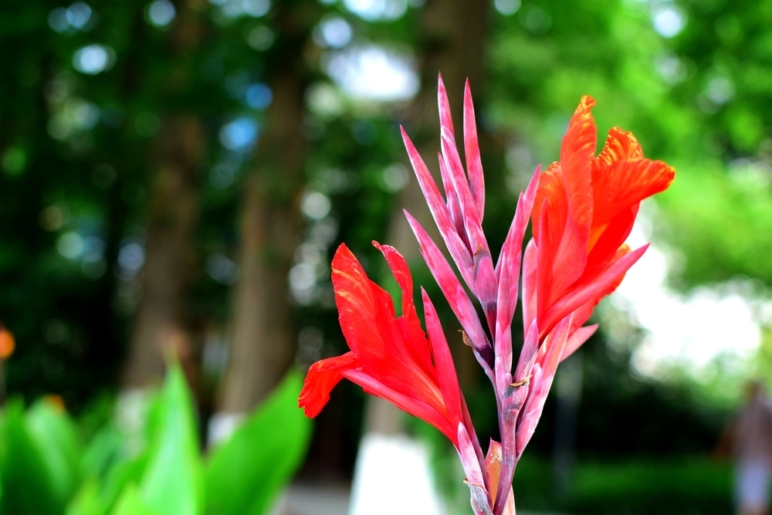
In a world brimming with pharmaceutical options and synthetic remedies, natural alternatives have begun to be given more attention. One such option is Kanna (Sceletium tortuosum), a succulent plant native to South Africa. In this article, we delve into the captivating world of Kanna effects and uncover its wide array of potential benefits by examining the research that currently exists.
What is Kanna?

Kanna, also known as channa or kougoed, is a traditional herbal remedy that has been used for generations by the San and Khoikhoi people of South Africa. It is characterized by its small, fleshy leaves and bright yellow flowers. Traditionally, the plant was dried and chewed, smoked, or brewed into a tea to induce a sense of relaxation and well-being. Nowadays, Kanna is available in various forms such as powders, capsules, tinctures, and extracts and can easily be purchased online from reputable vendors, such as Kon Kanna.
What Natural Chemicals are in Kanna?
Among the key compounds found within this plant are mesembrine and mesembrenone, alkaloids that are believed to play a central role in its anxiolytic (anxiety reducing) and mood-enhancing properties. Another notable constituent is mesembrenol, which is thought to contribute to Kanna’s analgesic potential, along with mesembrine. Additionally, Kanna contains mesembrenone, an alkaloid with adaptogenic and antimicrobrial properties. Collectively, these compounds create a synergistic blend that potentially gives rise to Kanna’s multifaceted benefits, including anxiety reduction, pain relief, stress management, and mood elevation.
What Are the Benefits of Kanna?
- Reduces anxiety
- Reduces pain
- Reduces stress
- Can act as an antidepressant
- Reduces inflammation
Anti-Anxiety
One of the most acclaimed benefits of Kanna is its potential to alleviate anxiety. The active alkaloids in Kanna, particularly mesembrine and mesembrenone, are believed to interact with serotonin receptors, promoting a calming effect and reducing anxiety levels. A 2012 study found Kanna to be promising in the treatment of anxiety.
Pain Relief
The plant’s alkaloids are thought to interact with the body’s pain receptors, offering relief from discomfort without the side effects often associated with traditional pain medications. For centuries, Kanna has been used as an antimicrobial and analgesic compound in native communities of South Africa, and it has been used as a painkiller for headaches, abdominal pain, and for the respiratory tract. The mesembrenone alkaloid that is found in Kanna has been tied to its antimicrobial properties.
Stress Relief
Kanna’s adaptogenic qualities are believed to assist the body in managing stress by modulating cortisol levels, thereby promoting a more balanced response to stressful situations. In one in-depth review, it was shown that Kanna is a potential source of an anti-stress agent when researchers gave Kanna extract to rats for 17 days and then subjected them to moderate stress; results showed reduced stress on lower doses of Kanna. In humans, it has been shown that Kanna elicits anxiolytic activity by serotonin reuptake and PDE4 (an enzyme that regulates inflammation) effects. Furthermore, another study highlighted Kanna as an anti-stress agent.
Antidepressant Properties
By enhancing serotonin activity in the brain, Kanna may contribute to an improved mood. A comprehensive review of Kanna effects showed that various studies have highlighted anti-depressive properties of the plant. One study in particular conducted an in-depth study on plant alkaloids as potential treatments for depression and found that Kanna had an abundance of alkaloids that are used in clinically depressed people. Specifically, the antidepressant effects of Kanna seem to be tied to mesembrine.
Anti-Inflammatory Action
Results of a 2018 study showed that high concentrations of mesembrine Kanna extracts demonstrated anti-inflammatory properties; another study concluded the same by looking at the cytokinin profile of the plant. As previously mentioned, there have been studies that have highlighted Kanna’s effect on the inflammation-regulation PDE4 enzyme, thus providing some clue into their mechanism of action.
Safety Considerations
While Kanna offers some promising benefits, it’s important to approach its usage with certain considerations in mind:
- Dosage: As with any herbal remedy, moderation is key. Start with a low dose and gradually increase as needed to avoid potential adverse effects.
- Interaction: Consult with a healthcare professional before using Kanna, especially if you are currently taking medications or have pre-existing medical conditions. Kanna may interact with certain medications or medical conditions.
- Pregnancy and Lactation: The safety of Kanna during pregnancy and lactation has not been established. It’s best to avoid its use during these periods.
- Individual Variability: People’s reactions to Kanna can vary. What works for one person may not work for another, and individual sensitivities should be considered.
Kanna’s journey from traditional remedy to modern wellness supplement is a testament to its potential benefits. From anxiety and depression relief to providing anti-inflammatory properties, this South African plant offers a range of positive effects that could positively impact our physical and mental well-being. As we continue to explore the realm of natural remedies, Kanna stands as a promising option for those seeking an alternative path to better health and vitality.





